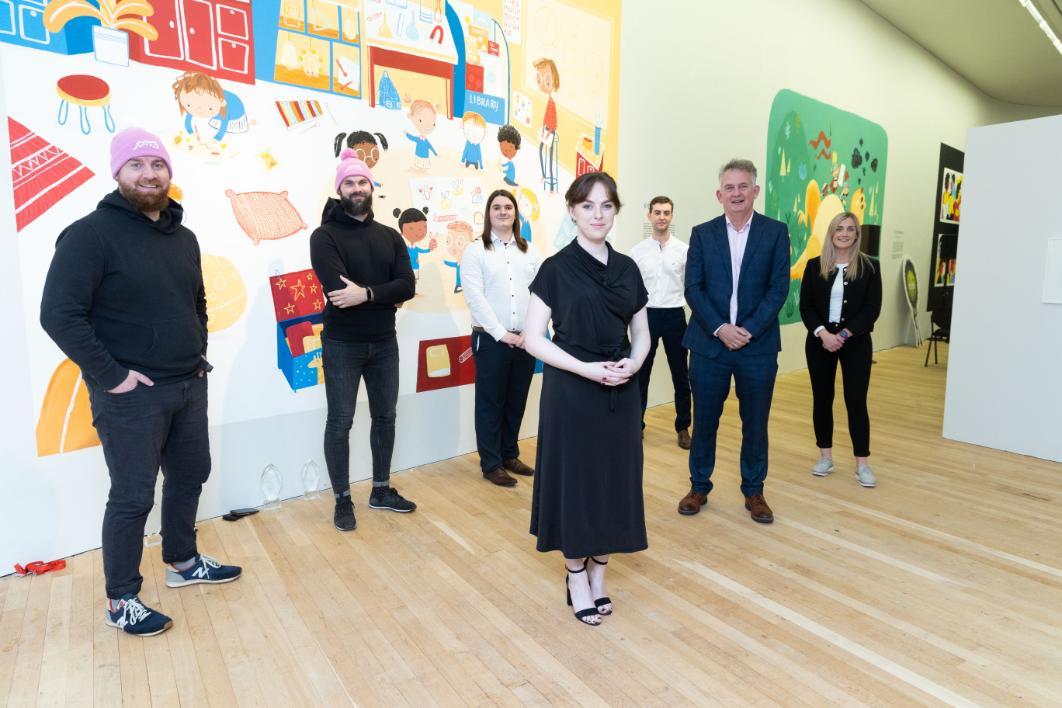IGNITE to take on start-up cohorts every 3 months

IGNITE UCC has revealed that it is shifting from two open calls per year to four open calls per year – taking on five start-ups four times a year instead of 10 start-ups twice a year.
Celebrated UCC incubator IGNITE increases pace of intake to meet start-up realities.
IGNITE UCC has revealed that it is shifting from two open calls per year to four open calls per year – taking on five start-ups four times a year instead of 10 start-ups twice a year.
Applications are open for the latest call from the IGNITE UCC programme which will close 10 January. Applications can be made here
“The start-ups come first and the programme should fit the start-up not the other way around”
The programme has supported more than 170 graduate founders since 2011 and is open to recent graduates from any third level institution in Ireland who have the passion and ambition to work full-time on a scalable start-up idea with potential for economic, environmental or social impact.
Supported by Bank of Ireland, IGNITE is a joint initiative by University College Cork, Cork City Council, Cork County Council and the Local Enterprise Offices of Cork City and County.
Last year it emerged that four start-ups emerging from the IGNITE programme were creating 25 new jobs.
Fanning the flames of entrepreneurship

Eamon Curtin, director, IGNITE UCC
We caught up with IGNITE UCC director Eamon Curtin to discuss the restructure of the popular programme.
Curtin explained the purpose of the restructure is to create greater flexibility for founders and create a realistic timeframe to achieve the creation of a revenue-generating, investor-ready business.
“Start-ups should be dictating the pace of the programme, rather than the programme dictating pace of the start-up,” he said.
WHAT IS THE REASONING FOR THE CHANGE OF STRUCTURE TO FOUR PER YEAR? WILL THIS LEAD TO ANY CHANGE IN ETHOS AT IGNITE?
Just like a start-up, we listen to our customers, in our case early stage start-up founders, we observe how they behave, and we evolve the programme to meet their changing needs. Over the years we have seen a greater diversity of start-up promoters contacting us with their start-up ideas. They are coming to us at different stages of development, at different times throughout the year and with different ideas that will progress at different rates.
Our initial response was to open for applications every six months. We have now taken that one step further and will take on smaller cohorts every three months in 2022. At the same time, we’ve developed a more flexible support structure so that IGNITE start-up founders can take advantage of the support they need when they need it, underlining a core IGNITE value, that the start-ups come first and the programme should fit the start-up not the other way around.

Pictured: Eamon Curtin, director, IGNITE UCC with Michelle Dorgan, programme manager, IGNITE UCC
WHAT HAS THE PANDEMIC THOUGHT US ABOUT BUILDING BUSINESSES IN A CHANGED WORLD?
If anything, the pandemic has highlighted the need for greater flexibility. While the uncertainty of the last 18 months or so has been difficult for some, it has also led to new opportunities for others and the businesses that have survived and thrived are the ones that been light on their feet and quick to respond. And it’s even more important that start-up support programmes like ours have high levels of flexibility to support them.
DO YOU THINK THE LANDSCAPE IS NOW HARDER FOR YOUNG BUSINESSES TO GET OFF THE GROUND OR EASIER?
The pandemic has also allowed aspiring start-up founders more freedom to develop their ideas. Many are using the time otherwise spent commuting and the flexibility that working from home offers to work on their start-ups. And they are finding that it’s easier than ever to get started. No code and low code development platforms allow web and mobile applications to be quickly developed without the need for traditional programming languages, online marketplaces allow products to be test marketed quickly and advances in manufacturing reduce the barriers associated with minimum order quantities. The challenge isn’t getting started, it’s getting to sustainability and then scale.
Article by ThinkBusiness.ie
